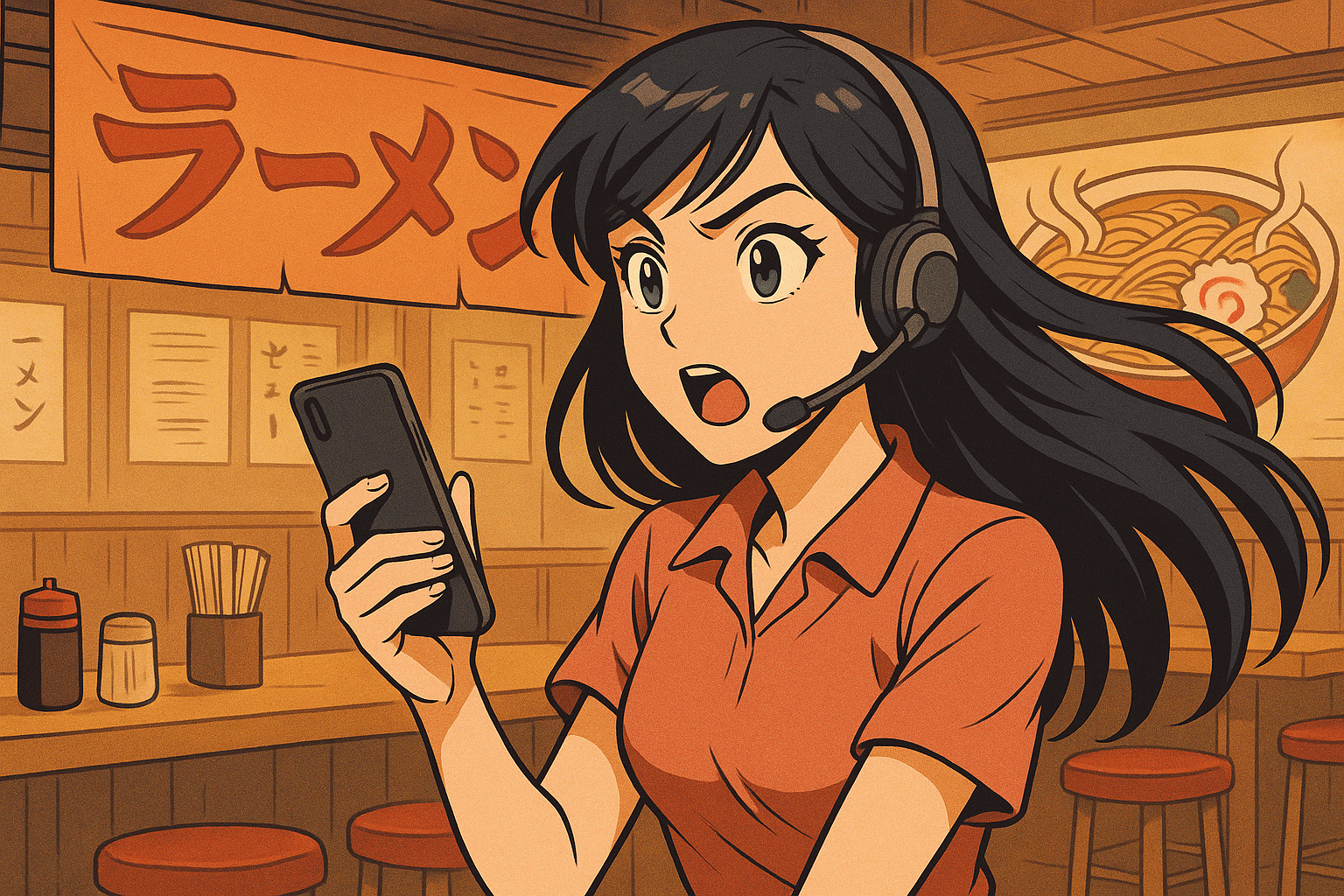The Capacity Challenge:
Why Every Call Matters During the Dinner Rush
The Call That Could Have Been Missed
Caller: “Need to see if left cell phone at restaurant.”
Yumi: “Oh no—let’s see if we can track it down. When did you dine with us, and about what time?”
Caller: “Today at noon… iPhone 16… clear case, blue phone.”
Yumi: “Thanks—that’s an iPhone sixteen, blue, in a clear case with a steel vibe. Where were you seated if you remember?”
Caller: “Dining room. Banquette.”
Yumi: “Perfect. I can’t check the floor myself, but I’ll flag the team right away. Could I grab your name and the best number to reach you?”
Caller: “Marissa Evans, 803-260-4655.”
Yumi: “Thanks, I’ve got your number as eight-zero-three, two-six-zero, four-six-five-five—did I catch that right?”
Caller: “Yes.”
Yumi: “Great, we’ll keep an eye out and call you if it turns up. You’re all set.”
At first glance, this was just a lost-and-found call. Routine. Forgettable. The kind of call a busy Saturday host might push to voicemail.
But at that very moment—5pm on a Saturday evening—Yumi was also answering four other calls:
- A reservation request.
- An employment screening.
- A gluten-free menu question.
- And a simple inquiry: “Are dogs allowed on the patio?”
Five calls. Five intents. Zero hold times.
For a human host, this would have been impossible. For Yumi, it was seamless. And within those five calls, the “dog on the patio” inquiry—the one that seemed least important—may have been the most valuable of all.
The Dog Call That Wasn’t Small
At face value, a patio dog question might sound trivial. But for the caller, the answer determined whether their group came at all. With reassurance, the party brought their dog, stayed for the evening, and ordered meals and drinks—easily $200–$300+ in revenue. Without an answer, they likely would have gone elsewhere.
This is the hidden truth of restaurant phones:
- The smallest-sounding questions are often the gatekeepers to larger spending decisions.
- Calls about parking, high chairs, hours, or dietary accommodations don’t just add convenience—they decide whether the customer chooses your restaurant at all.
And during peak hours, these are exactly the calls most likely to be missed.
The Revenue Risk of Missed Calls
The numbers are sobering:
- Restaurants miss ~150 calls per month, costing $27,000 per year in lost sales.
- Nearly 43% of missed calls happen during peak dinner hours, when the staff is busiest.
- 59% of customers hang up if on hold more than one minute.
- 90% don’t leave voicemails—they simply call a competitor.
- One missed catering inquiry can mean $1,000+ gone instantly.
Every missed call isn’t just a lost message—it’s a lost reservation, a lost birthday, a lost $500 night. And most restaurants never even know it happened.
The Staff Burden at Peak Hours
Hosts cost about $17/hour, but they can only answer one call at a time. When phones light up during dinner rush, one or more calls will always be abandoned. Servers fare no better—they’re carrying trays, not conversations. When they answer, it’s often rushed and distracted.
The fallout? Mistakes, incomplete information, or guests feeling brushed off. 24% of customers say they’ve requested refunds due to wrong orders—many of those errors begin with a hurried phone call.
Turnover makes the problem worse. Restaurant churn averages 75–150% annually. Hosts—the most likely to answer phones—are often the first to leave. Managers train and retrain endlessly, only to lose consistency as staff cycle out.
Yumi changes that equation. She’s trained once. She doesn’t forget. Updates come through the knowledge base, not another two-week onboarding cycle.
And there’s another wrinkle: many younger staff members are talented and hardworking, but they grew up in a world where phone calls are rare. Texting and apps are their norm. Put them on the phone, and it often shows: awkward greetings, hesitations, or rushed answers. It’s not their fault. But it’s your brand on the line.
Yumi eliminates that risk. Every caller hears the same warm, professional, brand-aligned voice, every time.
Yumi’s Advantage: Capacity Without Compromise
Yumi isn’t here to replace staff. She’s here to free them.
- Capacity: Five simultaneous calls answered at 5pm without hold music.
- Consistency: Each caller got the same polished, brand-aligned experience.
- Continuity: Menu changes, policies, promotions—updated instantly.
- Confidence: Staff could focus on in-person hospitality while Yumi ensured the phones were covered.
Where humans crack under the dinner rush, Yumi scales infinitely—without stress, without turnover, and without a single missed opportunity.
ROI for Restaurant Owners
The financial case is clear:
- Protects $27,000+ per year in missed-call leakage.
- Saves high-value bookings and catering leads.
- Reduces refund costs and errors from rushed calls.
- Eliminates retraining costs tied to turnover.
- Positions your restaurant as the one that always answers.
Conclusion: No Such Thing as a Small Call
The 5pm story proved it. Five calls, each seemingly routine, each holding real revenue potential. And the one most likely to be missed—the “dog on the patio” call—was perhaps the most valuable of all.
In restaurants, there is no such thing as a small call. Every question is a revenue decision. With Workforce Wave, every call is answered, every guest is heard, and no opportunity slips away.
Because sometimes the call that sounds smallest is the one that matters most.
Note on Privacy:
All names and identities in this story have been changed to protect the innocent. Caller is not actually "Marissa". “Yumi” is definitely not named Yumi (and is also definitely not human). Basically, if you think you recognize yourself here… you don’t. Unless you’re the person who still says “www dot” before every website—in that case, yes, it’s you.




